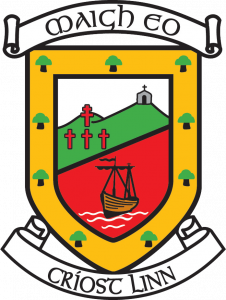Critical Incident Response Plan
What is a critical incident?
A critical incident is defined as a situation that overwhelms one’s natural capacity to respond. These are as broad and varied in their nature as any situation that can befall any individual, club, or community.
Critical Incident Response Training
In recent years Croke Park has supported many units in responding to critical incidents ranging from the tragic death of a member, suicide, road traffic accidents, or serious injuries sustained in a game/training or club activities.
While the response of our clubs, counties, officers, and volunteers has been instrumental in supporting those affected, feedback suggests that training to support the implementation of the GAA’s Critical Incident Response Plan (CIRP) would benefit all units.
To that end, at least two county-level volunteers in each county will receive Critical Incident Peer Support training; preferably the County Chairperson/Secretary, County Health & Wellbeing County Chairperson (or persons designated by them), plus a health and wellbeing tutor(s) from the county.
Training is available for Club Officers through the Community & Health department.
The two-hour training is designed to ensure that Critical Incident Peer Supporters can:
- Prepare a county-level Critical Incident Response Plan from the template/resource provided.
- Support club & county in adopting their own CIRP and support them should an incident arise.
- Respond in the most appropriate manner following a critical incident.
- The Peer Supporter(s) will be assisted in their role by their County Executive and County Health & Wellbeing Committee.
For further information contact: community.health@gaa.ie
For more information and resources, click here
GAA Responding to a Critical Incident – A short guide for clubs
Critical Incident Response Plan
Information & Support
Critical incident planning is the process of responding to a situation or critical incident by following 5 Key Principles during any crisis situation or critical incident.
- Promote a sense of safety
- Promote a sense of calm
- Promote a sense of self-efficacy and collective efficacy (i.e. the capacity to deal with the situation)
- Promote connectedness
- Promote hope
What is a critical Incident
A critical incident is defined as a situation that overwhelms one’s natural capacity to respond. These are as broad and varied in their nature as any situation that can befall any individual, club, or community.
Defining a critical incident
A critical incident is any event that is outside the range of usual human experience. It is an event that causes an unusually intense stress reaction which has the emotional power to overwhelm an individual’s usual ability to cope. It may impede people’s coping mechanisms immediately or in the future following the event. (GPA/GAA guidelines, 2014.)
Examples of some critical incidents may include
- Death or serious injury on or off the playing field
- Exposure to the aftermath of a road traffic accident e.g. the accident scene, the victim(s)
- Personal loss or injury, real or threatened to a child or adult
- Being violently threatened • Close encounter with death
- Suicide of a club member (this tragic situation can cause extreme distress and confusion for everyone involved. Guidelines developed by professional services highlighting the most appropriate responses following a death by suicide by sporting organisations are available. Some of this information has been included in a special section on suicide in the Appendix section of this resource.)
- A situation with excessive media interest • A natural disaster or act of God
- Other incidents not covered above but which are associated with unusually strong emotional reactions.

